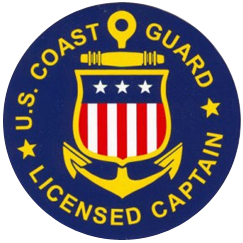This week Florida has experienced some unusual news on dozens of whales being stranded in the Florida Everglades.
Wildlife officials, scientists and volunteers have been scrambling this week to save dozens of pilot whales that beached themselves in the shallow waters of Florida’s Everglades. A fishing guide on Dec. 3 discovered a pod of 51 whales in a remote area of the Everglades called Highland Beach, more than 20 miles away from water deep enough to support them. When officials from the National Oceanic and Atmospheric Administration (NOAA) Fisheries department responded to the call the next morning, they found six of the pilot whales already dead and were forced to euthanize four more.
The chances of success were not high — past whale strandings in the same area had led to mass deaths, and in general, it can be difficult to coax whales from shallow water back to the open sea. This is especially true for highly social animals like the pilot whale, which travel in close-knit family groups, known as pods. Pilot whales are loath to abandon family members, even if it puts the entire group at risk.
On Dec. 4, though rescuers found another whale dead, they were surprised to discover that some 35 of the whales had begun to move themselves into deeper water. But even when whales move offshore, they can restrand. In a Friday morning update on Twitter, NOAA officials said that they had been unable to locate a larger group of 24 whales, though a handful of individual whales were seen free-swimming in deeper water, and weather had made it harder to spot the whales from air. (It doesn’t help that sharks have begun to feed on the bodies of the dead whales, creating a danger for rescuers on the water.) Still, the fact that the whales can’t be spotted could be good news — it’s possible that they’ve made it out to open sea. But it’s impossible to know yet for sure.
The question remains, though: Why would such a large group of whales put themselves in such danger? Some of the pilot whales may have been sick — the whales are known to carry the morbillivirus, a highly contagious disease that can cause respiratory problems and weakness in affected marine mammals. The virus spread in the mid-Atlantic this summer, with some 800 dolphins falling victim. It’s possible that a handful of the pilot whales could have gotten sick and disoriented, and inadvertently led the rest of the pod into trouble — though scientists won’t know until they’ve had a chance to perform necropsies on the dead whales, which will take weeks.
In Florida, boats and helicopters from the National Park Service and the U.S. Coast Guard are still out searching for the missing whales. And if we’re lucky, they’re already in the open ocean, on their way home.
Read more: Why Did Dozens of Whales Strand Themselves in Florida’s Everglades? | TIME.comhttp://science.time.com/2013/12/06/beach-mystery-why-did-dozens-of-whales-strand-themselves-in-the-everglades/#ixzz2n8yGAMXe
See more things like this on Everglades Airboat Rides Miami!






